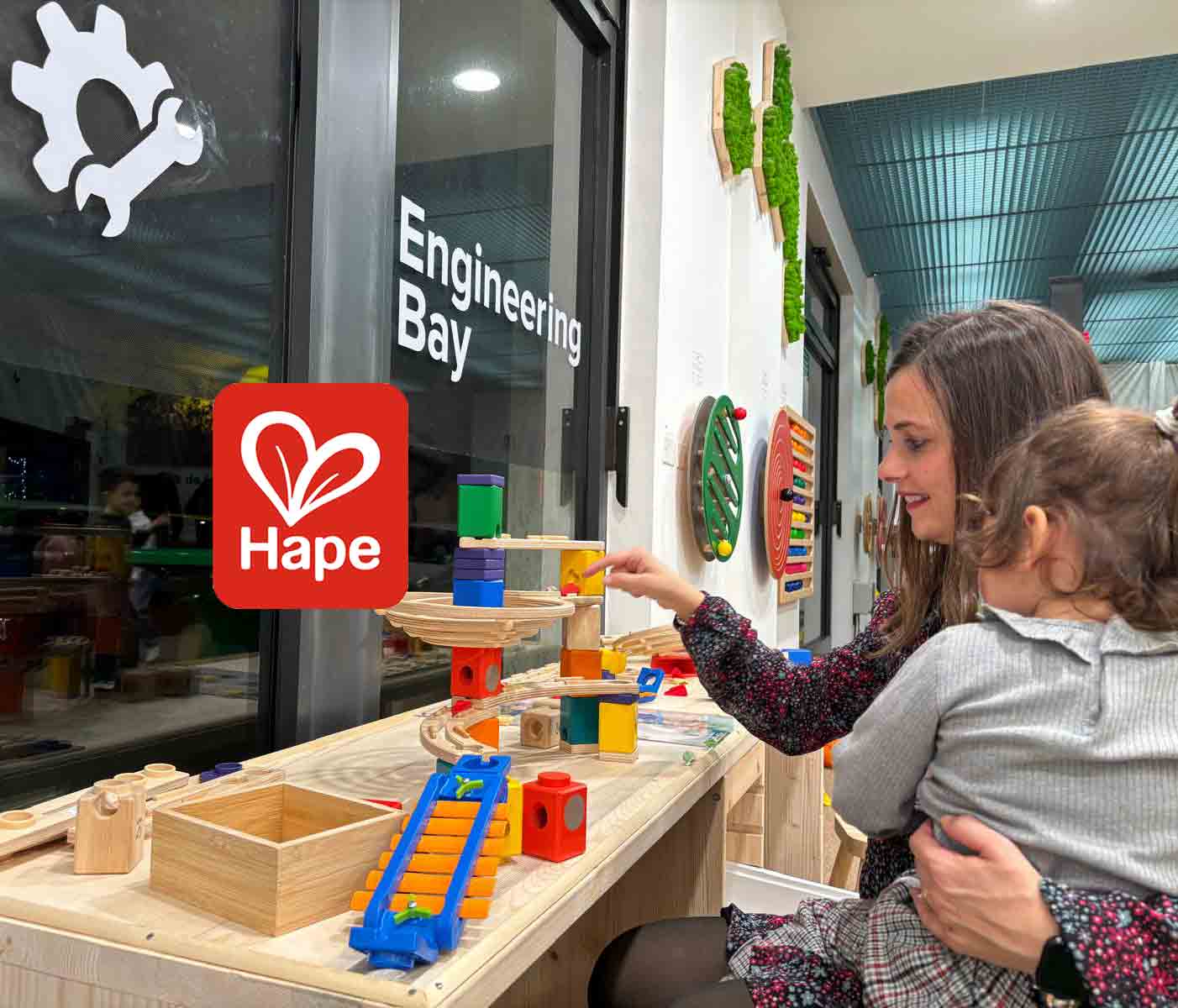Every parent has experienced that moment at the playground when their child approaches the monkey bars and the automatic response “Be careful!” escapes their lips. However, parenting intervention research reveals that these well-intentioned warnings may be fundamentally rewiring our children’s brains in unexpected ways. The neuroscience of brain development shows that repeated exposure to vague warnings creates what researchers call “effects of adversity on cognitive development”—a process where children’s brains become wired for anxiety rather than problem-solving.
Dr. Ellen Sandseter’s landmark study on risky play, published in Evolutionary Psychology, demonstrates that children who engage in age-appropriate risk-taking activities without constant parental warnings develop superior emotional regulation and problem-solving capabilities. This research reveals the critical importance of understanding parenting with brain understanding to foster healthy neural development in children.
How Parenting Style Brain Science Reveals the Damage of Generic Warnings
The neuroscience of brain development shows that vague warnings trigger what researchers call “amygdala hijacking”—a process where the brain’s fear center overwhelms rational thinking regions. When parents repeatedly use “be careful” without context, they inadvertently activate stress hormones cortisol production, creating lasting changes in their child’s neural architecture. This pattern represents one of the most significant effects of adversity on cognitive development, as it prevents children from building the co-regulation foundation emotional intelligence requires.
Parenting style brain science research demonstrates that children need opportunities to practice emotional triggers recognition and develop their own safety assessment skills. When parents consistently interrupt this natural learning process with generic warnings, they undermine their child’s developing capacity for emotional resilience and independent decision-making.
Responsive Caregiving: The Core of Healthy Brain Development in Children
Understanding Co-Regulation and Emotional Growth in Parent-Child Relationships
Responsive caregiving core parenting principles focus on building emotional growth in parent-child relationships through mindful communication parenting techniques. Rather than immediately issuing warnings, parents can use co-regulation strategies to help children navigate challenging situations while maintaining emotional connection. This approach supports the development of emotional resilience by teaching children to recognize their emotional triggers while feeling supported by their caregivers.
The co-regulation foundation emotional intelligence requires involves parents staying calm and present while their children encounter manageable challenges. Research conducted at the University of Minnesota by Dr. Alan Sroufe and published through the Minnesota Longitudinal Study of Risk and Adaptation reveals that children who experience responsive caregiving develop stronger neural pathways for self-regulation and emotional intelligence.
Parenting Tips for Emotional Regulation Through Brain-Based Understanding
Parenting tips neuroscience research supports focus on helping children develop internal awareness rather than external dependency. When a child approaches a tall climbing structure, parents practicing responsive caregiving might ask “What do you notice about how that feels under your hands?” instead of immediately saying “be careful.” This shift represents a fundamental change in parenting practices that honors both child safety guidance and the natural development of problem-solving abilities.
Brain development in children thrives when parents use parenting techniques that reduce anxiety while building competence. Child development neuroscience shows that specific, descriptive language helps children engage their prefrontal cortex—the brain region responsible for executive planning and emotional regulation—rather than simply activating their fear response systems.
Parenting Strategies Shifting from Fear to Skill-Building
The Neuroscience Behind Fear Response in Children
Parenting intervention research consistently demonstrates that the fear response in children becomes overactive when parents rely on vague warnings without providing actionable information. This creates what researchers identify as one of the primary effects of adversity on cognitive development—children learn to expect danger everywhere rather than developing the skills to assess actual risks appropriately.
Child development neuroscience reveals that chronic activation of stress hormones cortisol during critical developmental periods can permanently alter brain architecture. Children experiencing frequent activation of fear responses without resolution show measurable differences in hippocampal development—the brain region responsible for learning and memory formation. Understanding this impact of parenting on brain development helps explain why parenting strategies shifting toward skill-building prove so essential.
Building Emotional Resilience Through Empathetic Parenting
Empathetic parenting approaches that focus on encouraging independence in children while maintaining emotional connection create optimal conditions for healthy brain development. Rather than protecting children from all potential dangers, parents can use mindful communication parenting techniques to help children develop their own safety awareness and emotional triggers recognition abilities.
Social-learning parenting intervention strategies emphasize the importance of modeling calm curiosity rather than anxious protection. When parents demonstrate how to assess situations thoughtfully, children absorb both courage and emotional resilience. This approach to building resilience in children doesn’t ignore safety concerns but creates an environment where children can develop their own risk assessment skills while feeling supported.
Parenting Tips Neuroscience: Practical Applications for Emotional Growth
Implementing Problem-Solving Parenting Strategies
Problem-solving parenting represents a fundamental shift in parenting practices toward supporting children’s natural development of emotional intelligence. Instead of issuing commands, parents can use questions that invite children to engage their developing problem-solving capabilities. When a child wants to climb a tree, a parent practicing responsive caregiving might ask “How will you know if that branch is strong enough to hold you?” rather than immediately warning them to “be careful.”
This approach supports anxiety reduction in children by teaching them to trust their own assessment abilities while knowing they have parental support. Parenting with brain understanding means recognizing that children’s brains are designed to learn through supported exploration, not constant protection from manageable challenges.
Creating the Co-Regulation Foundation for Long-Term Success
The co-regulation process involves parents maintaining their own emotional regulation while supporting their children through challenging situations. This creates the foundation for emotional intelligence by teaching children that difficult emotions and situations can be navigated successfully with appropriate support and skills. Child safety guidance becomes more effective when it focuses on building internal awareness rather than external compliance.
Research on encouraging independence in children shows that when parents balance support with trust in their child’s developing capabilities, children develop stronger emotional resilience and better decision-making abilities. This balance represents the essence of responsive caregiving core parenting principles that support healthy brain development in children.
Long-Term Impact: Parenting Strategies Neuroscience Supports
The Connection Between Early Parenting Practices and Later Emotional Regulation
Longitudinal research examining the relationship between early parenting approaches and later emotional regulation abilities shows that children whose parents used descriptive, skill-building language during early childhood demonstrate significantly better stress management and decision-making abilities throughout adolescence. The impact of parenting on brain development extends far beyond childhood, influencing how individuals handle stress, relationships, and challenges throughout their lives.
Understanding parenting style brain science helps parents recognize that their everyday interactions literally shape their children’s neural architecture. When parents consistently use co-regulation techniques and responsive caregiving approaches, they help their children develop robust emotional triggers recognition and self-regulation capabilities that serve them throughout life.
Building Lasting Emotional Growth in Parent-Child Relationships
The transformation from protective warnings to skill-building guidance creates lasting emotional growth in parent-child relationships built on mutual respect and understanding. Children who experience empathetic parenting develop what researchers call “secure attachment”—a foundation of emotional resilience that supports healthy relationships and emotional regulation throughout life.
Parenting intervention research consistently shows that families who implement brain-based parenting strategies report improved relationships, increased child confidence, and reduced family stress within months of making these changes. The parent-child bond strengthens when built on trust and supported growth rather than fear and protection.
Implementing Parenting Strategies Shifting Toward Brain-Based Approaches
Practical Steps for Responsive Caregiving
Parents seeking to implement these parenting tips neuroscience supports can begin with small changes in their daily interactions. Instead of automatically saying “be careful” when children encounter challenges, parents can practice pausing and asking questions that encourage emotional triggers recognition and problem-solving. This shift represents the practical application of understanding the neuroscience of brain development in everyday parenting situations.
Social-learning parenting intervention strategies emphasize the importance of consistency in building new neural pathways. When parents regularly use mindful communication parenting techniques, children’s brains adapt to expect supportive guidance rather than fearful warnings. This creates lasting changes in how children approach challenges and regulate their emotions.
Supporting Anxiety Reduction in Children Through Brain-Informed Parenting
The most effective parenting techniques for anxiety reduction focus on building children’s internal capacity for emotional regulation rather than eliminating all potential stressors. By understanding the effects of adversity on cognitive development, parents can make informed decisions about when to step in and when to allow children to navigate challenges independently with appropriate support.
Creating Sustainable Change Through Parenting with Brain Understanding
Research shows that parents who consistently implement parenting strategies shifting toward brain-based approaches create lasting positive changes in family dynamics. The key lies in understanding that parenting practices need time to create new neural pathways in both children and parents. When families commit to responsive caregiving principles, they typically see improvements in emotional regulation and parent-child relationships within three to six months.
Empathetic parenting requires parents to examine their own emotional triggers and stress responses. Parents who model emotional resilience while supporting their children’s developing capabilities create the strongest foundation for long-term success. This process involves recognizing when fear-based reactions arise and choosing to respond with curiosity and support instead.
The Future of Parent-Child Bonds Built on Neuroscience
Understanding the neuroscience of brain development transforms how families approach everyday challenges and growth opportunities. When parents shift from protection-focused to skill-building approaches, they help their children develop the emotional triggers recognition and problem-solving abilities that serve them throughout life. This represents more than a simple change in communication—it’s a fundamental shift toward parenting with brain understanding that honors both safety and natural development.
The parent-child bond strengthens dramatically when built on mutual respect, trust, and understanding of how children’s brains actually develop. Families who embrace these brain-based parenting strategies report not only more confident children but also reduced parental stress and anxiety. The ripple effects of implementing responsive caregiving extend throughout the family system, creating environments where everyone can thrive.
Sandseter’s research continues to reveal the profound importance of allowing children to experience manageable risks as part of healthy development. Parents practicing responsive caregiving can support this natural process while maintaining safety and emotional connection, creating the optimal environment for building resilience in children and fostering long-term emotional intelligence.
The transformation from fear-based to skill-building parenting represents one of the most significant gifts parents can give their children—the confidence to navigate life’s challenges with competence, emotional regulation, and the deep knowledge that they are capable of handling whatever comes their way. Through understanding the impact of parenting on brain development, families can create legacies of emotional resilience that extend for generations.



